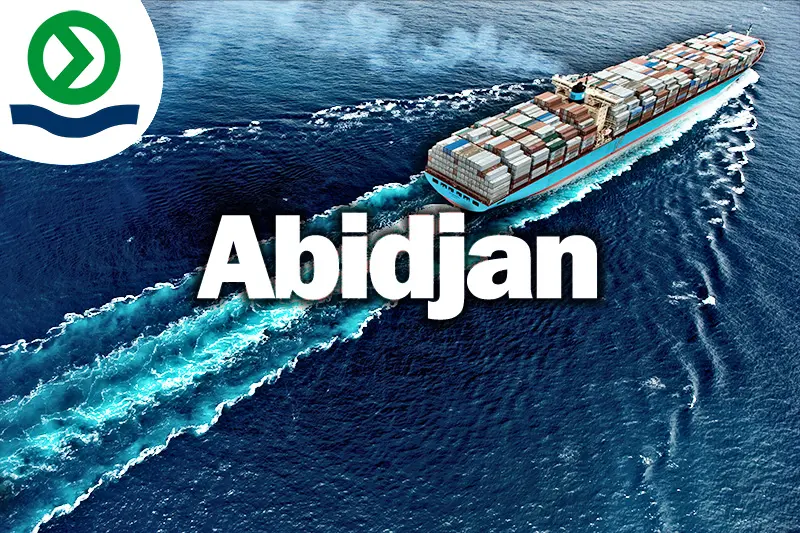From Aid to Trade:
How the U.S. Is Betting on Business, Not Charity, in Africa
Cameroon has recently inaugurated the second phase of the Kribi Deep Seaport, positioning it as the largest port in Central Africa. Constructed by China Harbor Engineering Company (CHEC), this expansion aims to bolster the nation's economic landscape by enhancing trade capabilities and attracting foreign investment, however concerns from local communities have risen.
The upgraded port now features a 715-meter quay, advanced handling equipment, and the capacity to accommodate ultra-large container ships such as the MSC Türkiye, which has a capacity of 24,346 TEU. This development is expected to significantly reduce turnaround times and double the port's handling capacity, solidifying Kribi's status as a key maritime hub in the Gulf of Guinea.
Beyond infrastructure, the port's expansion is anticipated to create over 300 direct jobs and stimulate economic exchanges throughout the subregion. The strategic location and modern facilities are poised to play a pivotal role in enhancing trade and economic growth in Cameroon and the broader Central African region.
However, the project's advancement has not been without challenges. Local communities, particularly in the village of Lolabe, have expressed concerns over displacement and inadequate compensation. Reports indicate that land laws in Cameroon are ambiguous, leading to disputes over property rights and compensation.
Environmental concerns have also surfaced. The port's construction has intensified coastal erosion and increased pollution, adversely affecting marine life and the livelihoods of local fishermen. The proximity of the port to Cameroon's only marine protected area raises further ecological concerns.
In response to some of these issues, CHEC has undertaken corporate social responsibility initiatives, including the construction of roads, bridges, and the installation of solar panels in nearby villages. These efforts aim to improve local infrastructure and living conditions.
As Cameroon navigates the complexities of rapid development, the Kribi Deep Seaport stands as both a beacon of economic potential and a reminder of the importance of inclusive and sustainable growth.
A BESC (Bordereau Électronique de Suivi des Cargaisons) is mandatory for all shipments to Cameroon.
The R&C Desk simplifies the process and provides
efficient assistance to comply with the latest requirements.
For further assistance, the R&C Desk website is available 24/7.
The United States is undergoing a dramatic shift in its approach to Africa, pivoting from traditional development aid to a model centered on commercial diplomacy and trade partnerships. This new strategy—summed up by the phrase “trade, not aid”—is being driven by the belief that fostering private-sector growth and long-term business relationships will yield more sustainable outcomes than decades of government aid ever could.
Spearheaded by the Biden administration but largely advanced under Ambassador Troy Fitrell and the Bureau of African Affairs, the strategy was formally launched in Abidjan, Côte d’Ivoire. U.S. diplomats are now tasked with bringing home business deals, not aid agreements. Already, within the first 100 days of this pivot, U.S. ambassadors have helped close 33 commercial deals across Africa, totaling approximately $6 billion in value.
A cornerstone of the approach is a $550 million loan commitment to support the development of the Lobito rail corridor. The initiative is more than just economic; it’s a clear statement of geopolitical intent, seeking to counter China’s growing influence on the continent by offering a market-driven alternative.
Beyond infrastructure, the U.S. Development Finance Corporation (DFC) is intensifying investments in sectors like energy, telecommunications, and mining. Forums like the upcoming U.S.–Africa Energy Forum in Houston this August and a planned U.S.–Africa Leaders’ Summit in September are meant to deepen ties and accelerate deal-making.
Despite the strategic logic, the shift has not been without controversy. Earlier this year, a 90-day pause on most U.S. foreign aid programs raised alarm among humanitarian organizations, with critics warning that a sharp decline in aid could threaten vulnerable populations and undercut decades of development progress. Aid has long been a central pillar of U.S. engagement in Africa, and its deprioritization—however strategic—poses risks if not carefully balanced.
Ultimately, the success of this strategy will be judged not just by the volume of deals signed or dollars invested, but by whether it fosters inclusive growth, builds resilient economies, and maintains America’s credibility as a genuine partner to Africa. The coming months—and high-stakes events like the Houston energy forum—will offer the first real tests of whether this bold new direction will pay off.
A BESC (Bordereau Électronique de Suivi des Cargaisons) is mandatory for all shipments to Ivory Coast.
The R&C Desk simplifies the process and provides
efficient assistance to comply with the latest requirements.
For further assistance, the R&C Desk website is available 24/7.
Get your BIETC/ECTN
BESC/Waiver/Certificate for Ivory Coast!
Stay on up to date of all regulations!
Sources
globalbusinessoutlook.com | energycapitalpower.com | www.reuters.com/world
Image by R&C Desk
What are you waiting for?
Let us make sure that you have the correct Electronical Cargo Tracking Note for you shipment!
Login
